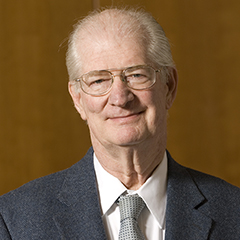We’re not living on Earth as if we want to stay, observes Mike Nickerson. In our last episode, Mike Nickerson shared his vision for, and the joy of, making the cultural shift necessary for a sustainable human civilization. In this continuation of the conversation, we explore some of the forces keeping our system stuck in an unsustainable mode. Nickerson leads the Sustainability Project/7th Generation Initiative in Canada, a non-profit organization that collects, studies, develops and teaches ideas, information, technologies and…
Category Archives Podcasts
“We could be having so much fun that there just isn't time to consume resources on a quantity, or produce waste on a quantity that would be problematic for the planet,” according Mike Nickerson. He shares his ideas about how enjoyable it could be to make the cultural shift necessary for human civilization to be sustainable. Mike Nickerson has spent his career advancing sustainability. In the 1970s he founded and co-directed the Institute for the Study of Cultural Evolution. Today…
Efforts to date are falling far short of achieving the greenhouse gas reduction needed to avoid catastrophic climate disruption. Bioethicist Travis Rieder shakes things up by suggesting ethical use of public policy to encourage smaller families, which would result in dramatic decrease of carbon emissions. Rieder co-authored the paper, Population Engineering and the Fight Against Climate Change. In part two of this 2017 conversation, Rieder shares how he and co-authors Colin Hickey and Jake Earl parsed out what fertility reduction…
With human activity disrupting the climate, do we have a moral imperative not to have children, or to have only one child? Bioethicist Travis Rieder dares to explore this bold question with sensitivity and scientific rigor. Rieder shares his logic in the short book, Toward a Small Family Ethic: How Overpopulation and Climate Change are Affecting the Morality of Procreation. It starts with the fact that deciding not to have one child is over 20 times more effective at reducing…
How can policymakers be persuaded to abandon the most widespread public policy goal on Earth? In our last episode, Brian Czech explained that economic growth cannot be sustained perpetually on a finite planet. This episode continues that conversation with the conservation biologist and economics expert. Here, he explains why pro-growth economists proliferate, and offers his prescription for making the shift to a steady state economy. Brian Czech is founder and president of the Center for the Advancement of the Steady…
Economic growth is the number one public policy goal around the world, yet our pursuit of growth is “pulling out the rug from our own kids’ and grandkids’ future,” according to Brian Czech, founder and president of the Center for the Advancement of the Steady State Economy. He wants us to understand economic growth is physically impossible to sustain on a finite planet, it’s depleting nonrenewable natural resources and degrading or eliminating crucial habitat for other species. Czech authored Shoveling…
Was globalization a temporary state that has run its course? That’s the case made by Jerry Mander, who believes there is plenty of evidence that the promises of capitalism, consumerism, individual wealth and never-ending growth are coming up empty. He’s founder of the International Forum on Globalization and author of The Case Against the Global Economy and for a Turn Toward the Local. He also wrote The Capitalism Papers: Fatal Flaws of an Obsolete System in 2012. Jerry Mander is…
Hollywood director Tom Shadyac traded a mansion and private jets for a mobile home and a bicycle. He had found the traditional trappings of success were not the key to happiness. After a successful Hollywood comedy career and a near-death bicycle accident, Tom eagerly shares his discoveries about life and happiness. In part two of a two-episode conversation, Shadyac discusses technology, morality, competition, success and politics. His documentary, I Am, explored what’s wrong with the world and what we can…
Robust economic growth has become the Holy Grail of public policy and politics. But some economists and many scientists have come to believe growth has become “uneconomic." Former World Bank Senior Economist Herman Daly explains this in terms we can all understand. The economy is a sub-system of a larger system. The larger system being the biosphere, the environment. The biosphere is finite, non-growing, materially closed. We get a flow of solar energy coming in, but it's not growing, either.…
“Gross Domestic Product has now become a fetish,” according to economist Raj Patel. Many undesirable things end up adding to GDP: wars, disease, and environmental destruction, for example. And GDP fails to measure many desirable indicators of community health. It has led us to live in an ecologically and socially unsustainable fashion. No one wants to live in the Stone Age, no one wants to live in a time with bad medical care, no one wants to live in a…


